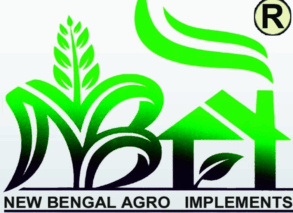Marketing Automation

The Power of Marketing Automation: Streamlining Your Business for Success
In the fast-paced world of digital marketing, staying ahead of the competition requires efficiency, precision, and automation. Marketing automation has revolutionized the way businesses connect with their target audience, allowing them to streamline their processes, drive engagement, and ultimately boost their bottom line. In this blog post, we will explore the concept of marketing automation, its benefits, and how it can transform your business into a well-oiled marketing machine.
What is Marketing Automation?
Marketing automation refers to the use of software and technology to automate repetitive marketing tasks and workflows, allowing businesses to deliver personalized, targeted messages to their audience at the right time. It encompasses a wide range of activities, including email marketing, social media scheduling, lead nurturing, customer segmentation, and more. By automating these processes, businesses can save time, reduce human error, and focus on high-value tasks that drive growth.
Benefits of Marketing Automation
Time and Resource Efficiency: With marketing automation, businesses can eliminate manual, time-consuming tasks, such as data entry and campaign monitoring. This frees up valuable resources and allows marketing teams to focus on strategy and creative initiatives.
- Enhanced Personalization: By leveraging automation tools, businesses can gather valuable data about their audience, such as browsing behavior, purchase history, and demographics. This data can then be used to personalize marketing messages and deliver targeted content that resonates with each individual.
- Lead Nurturing and Conversion: Marketing automation enables businesses to create personalized nurturing campaigns that guide prospects through the sales funnel. By delivering relevant content and timely follow-ups, businesses can build trust, establish credibility, and increase the likelihood of conversion.
- Improved ROI and Revenue Growth: With targeted and personalized campaigns, businesses can optimize their marketing efforts and generate higher-quality leads. This, in turn, leads to increased conversion rates, improved customer retention, and ultimately, a higher return on investment.
Key Features and Tools
- Email Marketing Automation: Automating email campaigns allows businesses to send personalized messages triggered by specific actions or events. This feature ensures that subscribers receive relevant content and helps nurture leads effectively.
- Social Media Management: Automation tools enable businesses to schedule and publish social media posts in advance, ensuring consistent and timely engagement with their audience. They can also monitor social media mentions and interactions, facilitating better customer relationship management.
- Lead Scoring and Segmentation: Marketing automation platforms often include lead scoring capabilities, which assign a numerical value to leads based on their behavior and engagement level. This helps prioritize leads and focus efforts on those most likely to convert. Segmentation allows businesses to group leads based on specific criteria, enabling highly targeted campaigns.
- Analytics and Reporting: Comprehensive analytics provide valuable insights into campaign performance, customer behavior, and ROI. By analyzing these metrics, businesses can make data-driven decisions, refine their strategies, and optimize their marketing efforts.
Implementation and Best Practices
- Set Clear Goals: Define your marketing objectives and determine how automation can help you achieve them. Whether it’s lead generation, customer retention, or increasing sales, having clear goals will guide your automation strategy. 2.Choose the Right Tools: Research and select a marketing automation platform that aligns with your business needs and budget. Consider factors such as ease of use, scalability, integration capabilities, and customer support.
c. Build Effective Workflows: Map out your customer journey and create automated workflows that deliver relevant content at each stage. Design nurturing campaigns, drip sequences, and follow-up messages to guide prospects toward conversion.
d. Continuously Optimize: Regularly analyze your automation efforts and make data-driven adjustments. Test different messaging, subject lines, CTAs, and timing to optimize engagement and conversion rates.
Marketing automation is a game-changer for businesses looking to streamline their marketing processes and drive results. By leveraging the power of automation tools, businesses can save time, improve efficiency, and deliver personalized experiences that resonate with their target audience. Embrace marketing automation and unlock its transformative potential to boost your business growth and stay ahead in today’s competitive digital landscape.
